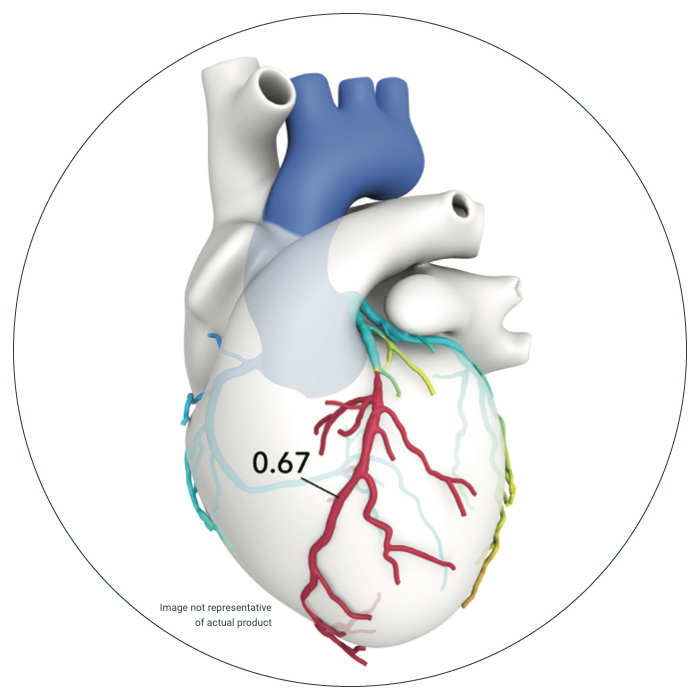
Transforming the Diagnosis and Management of Coronary Artery Disease by unlocking the Power of Coronary CTA
HeartFlow FFRCT Analysis
The HeartFlow FFRCT Analysis is the first non-invasive diagnostic tool that aids clinicians in determining, vessel by vessel, both the extent of an artery’s narrowing and the impact that the narrowing has on blood flow to the heart.
By non-invasively identifying which patients do and do not need intervention, clinicians can reduce unnecessary invasive testing, reduce healthcare system costs and improve patient quality of life.
Learn more about our technology in this short video or preview the HeartFlow Analysis.

Revolutionizing Precision
Heart Care
By combining review from trained Analysts, who have over 500,000 hours of collective, experience, with AI-powered algorithms trained on millions of CT images, HeartFlow is bringing a new level of precision to non-invasive detection of heart disease.

1 – Scan & Send

2 – Anatomy + Physiology

3 – Receive & Interact

HeartFlow FFRCT Analysis
- Enables a more accurate diagnosis of CAD compared to other non-invasive tests
- Provides <1% chance of missing disease
- Non-invasive, therefore imposing less risk
- Provides a streamlined experience with fewer unnecessary test and outpatient visits
- No additional radiation exposure
Clinical Evidence
Guidelines
The Precise Trial
It’s confirmed. The Precision Pathway recognized in the AHA/ACC guidelines — centered around Coronary CTA+FFRCT — is superior to Traditional Testing, which prioritizes functional (stress) testing and Invasive Coronary Angiography (ICA).1
The Fish&Chips Study
Real-world study reveals significant reduction in all-cause and cardiovascular mortality.
A real world, multi-center, retrospective study including more than 90,000 patients assessing at a national level the incremental impact of adding FFRCT to a CCTA-first diagnostic paradigm for evaluating and managing coronary artery disease (CAD). The study was conducted in England and was funded by UK Medical Research Council (MRC).